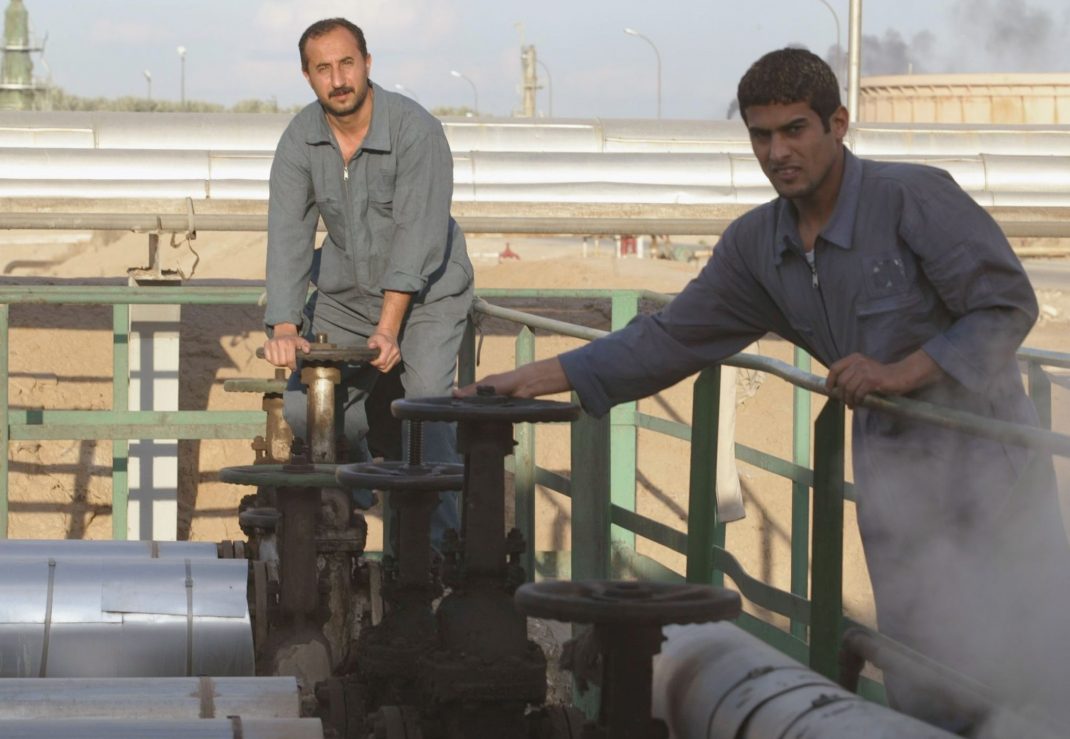Guards and officials at major ports in Libya’s eastern Oil Crescent say they’re hoping foreign workers will soon return as they struggle to build on output gains with meagre resources.
The National Oil Corporation (NOC) reopened three ports in the curve of coastline south of Benghazi in September, after the Libyan National Army (LNA) led by Khalifa Haftar seized them from a rival faction.
The lifting of a long blockade at the ports helped Libya’s oil output to more than double to over 600,000 barrels per day (bpd).
Miftah Magariaf, head of the Petroleum Facilities Guard (PFG) deployed in the ports, said the oil and gas network in the whole of the eastern region, from Libya’s eastern and southern borders with Egypt, Sudan and Chad, to the central region of Sirte, was now secured.
Foreign workers could return, he said.
“We invite them to come back and resume their work and the area that we’ve outlined is a safe area; until the outskirts of Sirte in the west is under the protection of the oil institution and the general leadership is at Sirte’s main operations room and now all the companies are serving it,” Magariaf told Reuters in Brega, one of four Oil Crescent ports that the LNA seized in September.
Last month, another blockade was ended at a pipeline in western Libya, pushing production to more than 700,000 bpd.
That is still well below than the 1.6 million bpd Libya was producing before a 2011 uprising and subsequent armed conflict severely disrupted output. Production in the Oil Crescent is still far under potential.
Recent and future gains threaten to complicate efforts by the Organization of the Petroleum Exporting Countries to cut output and bolster global prices, though Libya’s recovery remains at risk from political chaos and security threats.
Since the ports changed hands, Haftar’s rivals have tried to counter attack from the desert to the southwest, which could become a new flashpoint in the country’s low-intensity conflict.
Officials have cautioned that any recovery will be gradual because infrastructure has been damaged by fighting and degraded by disuse.
“The closure of the oil ports had a very big impact on the plants, which have stopped working and are also suffering due to the absence of regular comprehensive maintenance and spare parts and so on,” said Hamid al-Habouni, Manager of Ras Lanuf Oil and Gas Processing Company, adding “In addition, the Emirati company has stopped its refiner and so all the factories have suspended their operations. We lack the budget to keep the plants working and to maintain them.”
The NOC, which hopes to raise national production to 900,000 bpd by March, has also struggled to secure funds for its operating budget and for repairs from a U.N.-backed government in Tripoli that lacks full control over public finances.
And security remains a major concern.
Several foreign oil workers were kidnapped by Islamic State when it raided oilfields from its now defeated base in Sirte last year. In Tripoli, few nations have reopened embassies since pulling out during fighting between rival military factions in the capital in 2014.
Es Sider and Ras Lanuf ports, the largest in the eastern region, were closed for more than two years before the LNA took them over.
They were severely damaged by fighting and attacks by Islamic State militants who have since been chased from their former stronghold in Sirte, about 180 km west of Es Sider.
“There were 19 storage units at the port fit for use, but after the military confrontations that recently took place, some of the storage units were destroyed, leaving only four usable ones. We’re currently working on the maintenance of some of the warehouses and hopefully soon they will back in action,” said Sidra Oil Port Deputy Manager, Ibrahim Al-Malhoof.
While Es Sider, Ras Lanuf and the port of Zueitina had been blockaded, Brega remained open with reduced capacity.
Officials at Sirte Oil Company based in Brega, said the situation had improved since the LNA advance and some foreign employees considering returning to the region.
_____________




